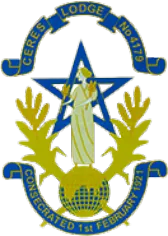Susan Snell, Archivist and Records Manager presents
When lockdown first started, we received several enquiries asking about how freemasonry coped with the Spanish Flu a century ago.
That devastating pandemic caused the death of over 200,000 people in Britain, primarily young adults aged 20 to 30. It included soldiers returning from World War I trenches and women working in factories, transportation and farms, many doing the jobs of men sent to the front. We searched for information in the UGLE archives but could find very little.

This made us realise the critical importance of capturing today’s response to COVID-19: how are freemasons coping with virtual meetings and supporting local communities in lockdown?
How we communicate has certainly changed since the last major international pandemic. Nowadays, information is exchanged instantly over the internet, through emails and social media. The pandemic has encouraged many of us to adopt new ways of communicating, often for the first time.
During these challenging times, we have learned to exchange emails with confidence, participate in Zoom meetings with enthusiasm, add comments to Facebook posts and join conversations on Twitter. Whereas UGLE's archives preserve the physical copy of letters, minutes and memos from a century ago, modern social media posts risk disappearing tomorrow if they are not already gone today.
How can we make sure that we retain the rich records created by members and UGLE staff during this crisis?
Just before lockdown, the Museum's archives began using new software, Preservica, to help preserve digital resources permanently. We can capture any digital content, keep and maintain it for future access. Even if the formats of digital documents change over time, this software will allow us to migrate resources so we can continue to read them in the future. This way, we can preserve our corporate memory and prevent the loss of digital records. We can save websites, digital newsletters, videos, Twitter feeds, etc. It is the archival equivalent to stopping the extinction of rare plants or animals. It will help us record how members have lived through lockdown and what they have done to help locally.
The communications teams at UGLE and the Masonic Charitable Foundation are also sending us digital resources that would be lost forever if not collected now. We are keen to capture many items such as newsletters, letters sent by Provinces to members, diaries that record details of life during lockdown and videos.
If you feel you can contribute something, please let us know what you are sending, who is included, when it was made and where it is from. You can also send us large documents with lots of images and photos – contact us for more details. You can send WhatsApp messages (please ask for our number).
We've set up an email address especially for this project, so please do add it to your circulation lists:
We're also interested in collecting physical items such as brochures, handwashing posters, lapel pins, t-shirts, polo shirts, PPE with logos for our museum collection. Please make sure you have everyone's permission to collect this material though, and enquire in a sensitive, respectful, and ethical way. This is especially important for images of community activities, lockdown recollections and details of hardship experiences due to the pandemic. Let people know what you are collecting and why; explain that you are trying to keep a record of this unique situation and respect there may be some high emotions involved.
We look forward to hearing from you. To find out how to get started, read the Museum's web page about our exciting initiative: https://museumfreemasonry.org.uk/our-covid-19-story

This article is part of the Arena Magazine, Issue 46 October 2021 edition.
Arena Magazine is the official magazine of the London Freemasons – Metropolitan Grand Lodge and Metropolitan Grand Chapter of London.
Read more articles in the Arena Issue 46.

